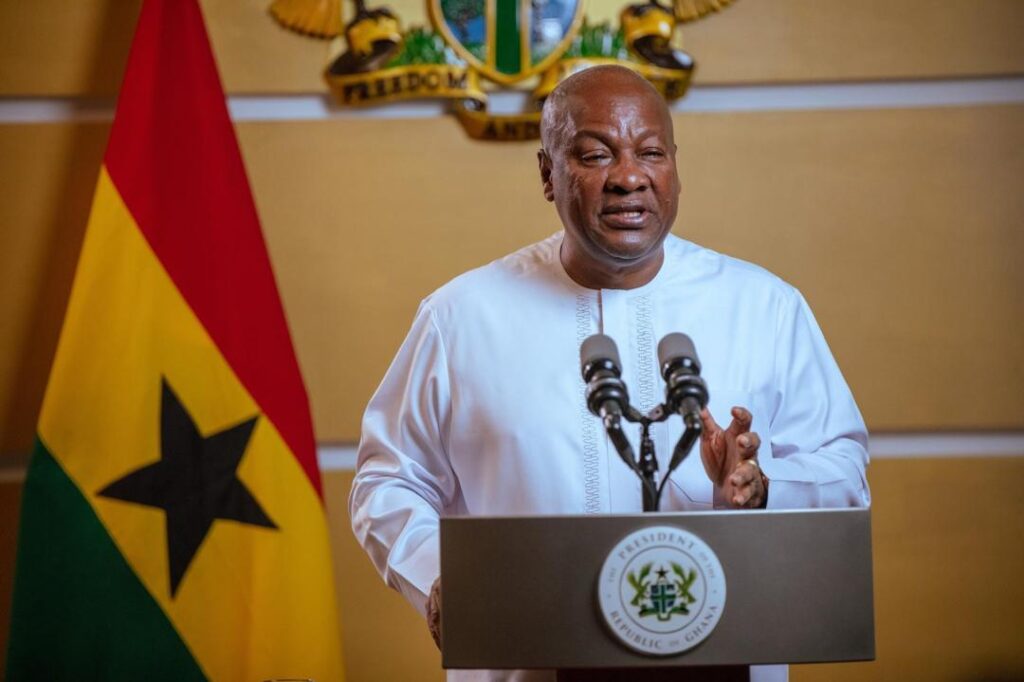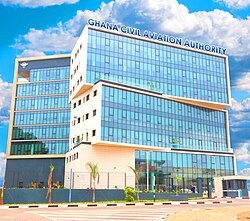In a sweeping address marking his first 120 days in office, President John Dramani Mahama laid out the foundational actions his administration has taken to honour the social contract with Ghanaians.
With a strong emphasis on accountability, transparency, and public trust, the President announced an aggressive push to tackle corruption, institute forensic audits into high-profile scandals, and enforce a landmark policy that bars political appointees from acquiring state assets.
“This war against corruption continues unabated. The Minister for Health is reviewing the Auditor General’s report on COVID-19 expenditures. After the review, the appropriate actions will be taken.”
President John Dramani Mahama
On the Sputnik-V vaccine procurement scandal, which raised eyebrows over the role of middlemen and inflated costs, President Mahama confirmed that investigations are currently underway.
Similarly, the collapse of several indigenous banks and financial institutions is under the spotlight.
The President noted that the Minister for Finance has initiated an inquiry to unearth the circumstances that led to the loss of livelihoods and the shrinking of Ghana’s financial ecosystem.
The President vowed that “facts will be unearthed, culprits will be punished, and lessons will be learned.”
Energy sector corruption also features prominently in the government’s audit agenda. The Minister for Energy & Green Transition according to President Mahama is leading a probe into the Power Distribution Services (PDS) scandal—one of the most controversial deals under the previous administration.
Meanwhile, the President noted that an independent audit of the National Cathedral project, being carried out by Deloitte & Touche, is expected to be completed by the end of May.

This audit, long demanded by civil society and opposition voices, could bring closure to questions surrounding the use of public funds in what was widely criticized as a vanity project.
Another major item on the anti-corruption agenda is the hosting of the 13th African Games. The President disclosed that a number of officials have already been invited and questioned over expenditure related to the event.
Notably, on April 30, 2025, the Attorney General filed eleven charges against a former Director General of the National Signals Bureau and others. The offences span a range of financial and administrative breaches.
Similar legal action, according to the President, will follow in the cases of the Accra Sky Train project and the widely reported National Service ghost names scandal.
President Mahama also lauded the work of the Office of the Presidential Advisor on Anti-Corruption, which he said would continue to receive and transmit complaints to the Attorney General.
The ORAL (Operation Recover All Loot) mechanism, he noted, had already gathered over two thousand corruption complaints in just a few weeks, showcasing a renewed public willingness to participate in the fight against graft.

Ban on Political Appointees to Acquire State Assets
Moreover, perhaps the most revolutionary policy announced by the President is the institutional ban on political appointees from purchasing state assets.
Citing a troubling surge in asset grabs by politically connected individuals, particularly under the previous administration, President Mahama said his government had taken decisive steps to end the practice once and for all.
“Reports of former officials acquiring public property after regime changes have eroded public trust”.
President John Dramani Mahama
The policy, now in full force, prohibits all political appointees, their assigns, and closely associated individuals from acquiring any public asset.
It is enforced through Section 5.2(b) of the Code of Conduct for Political Appointees, which stipulates the immediate termination of any appointee found to have purchased or to be in the process of purchasing state property, whether directly or through proxies.
This policy marks a historic shift in public sector ethics in Ghana. For decades, regime changes were followed by the quiet—and sometimes aggressive—privatization of public assets by politically powerful individuals.
President Mahama’s move strikes at the heart of this long-standing source of inequality and political patronage.

In concluding his address, the President emphasised that his anti-corruption efforts were not about vendetta but about restoring credibility and enforcing justice.
“My commitment to fighting corruption is not limited to recovering loot from past appointees; we will also ensure that our appointees serve Ghana responsibly and are held to the highest accountability standards”.
HE President John Dramani Mahama
With these bold actions, President Mahama has thrown down the gauntlet—drawing a sharp contrast between his administration and its predecessor, and setting a tone of reform, transparency, and zero tolerance for corruption.
READ ALSO: President Mahama Hails Bold Economic, Tax Reforms & Fiscal Discipline







